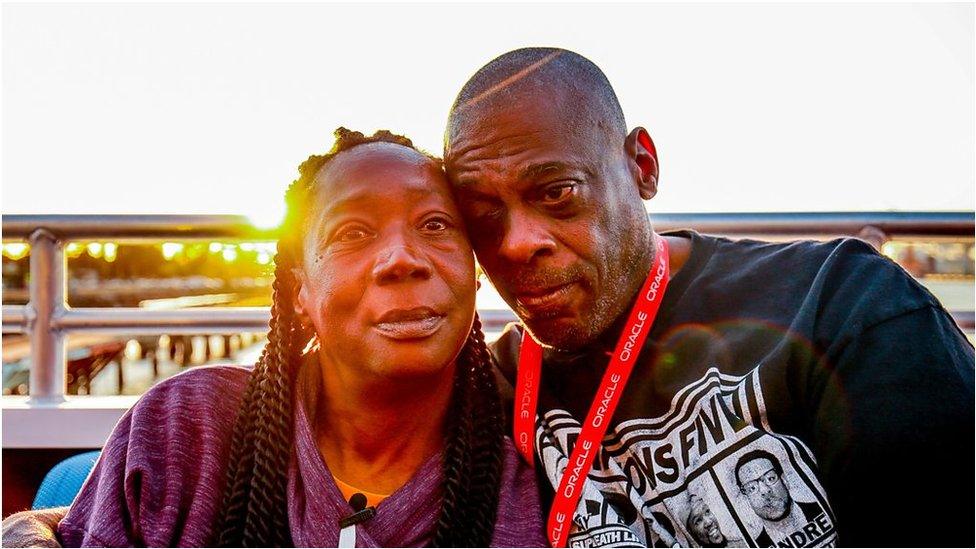Van life is far from glamorous on LA's streets
- Published
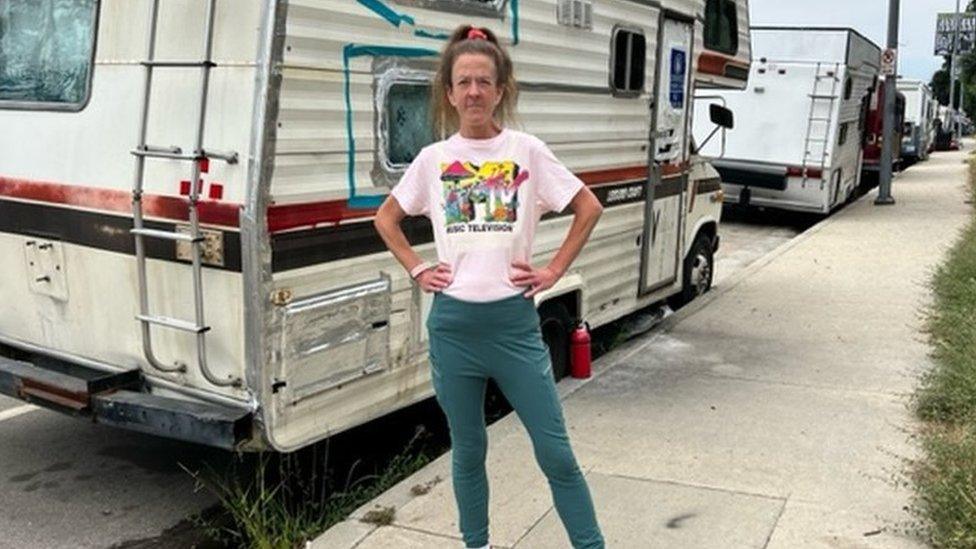
Liberty Justice rents a van in Los Angeles just below the Hollywood Hills - but life is far from glamorous
Just below the swanky homes in the Hollywood Hills and across from the Warner Bros. Studio in Burbank, California, dozens of motorhomes and camper vans line Forest Lawn Drive.
It's one of many makeshift trailer parks in Los Angeles where a growing number of people live rough in vans and motorhomes with no access to running water or electricity.
Some own their motorhomes. But a growing number pay rent - anywhere from $400-$1,000 (£314-£784) a month - to "van lords" who advertise motorhomes online. Many of the vans are inoperable and some don't even have motors. But the doors lock and they offer cheap shelter in neighbourhoods where $2,000 a month often isn't enough for a studio apartment.
They park for weeks on end next to No Parking signs - but are rarely towed away and only occasionally ticketed. The city doesn't have space to store them even if they did have enough tow trucks to handle giant camper vans.
The city is now considering a crackdown on van lords amid growing complaints about sewage, environmental damage, and a series of fires from the trailer parks.
"It's terrible," said Liberty Justice, an entrepreneur and YouTuber who rents a van on Forest Lawn Drive. "I will not do another winter like this - I need to make more money."
Ms Justice said her van lord has towed her to multiple neighbourhoods to avoid parking fines and she has no say in the location.
When you search social media for #vanlife, you find scores of beautiful people traveling around the world and living what looks like a fabulous, photogenic life living in a van.
But the reality is far from glamorous, van dwellers say. To take a shower, some use truck stops, gyms, friends' houses or the beach. One man said he just dumps bottled water over his body on the sidewalk when he can get extra. Many people use the sink at the public toilet in a park across the street from Universal Studios where children play baseball on the weekends.
You can't call the police to complain about your neighbours littering or doing drugs. Justice keeps her area neat and tidy and uses solar generators to supply internet to power her business. But the biggest danger, she said, is traffic, since the trailer is parked along a busy road.
"I was on my morning run and got hit by a truck," she said. "I try to stay positive, but it's hard not to get angry sometimes."
According to the city's latest homeless count, there are about 6,500 people living in recreational vehicles in LA - a 40% increase since 2018 - with a very visible rise across the city since the pandemic.
Los Angeles city and county officials have been working to move homeless people inside amid a growing homeless population. Since Karen Bass was elected mayor in November, more than 14,000 people have been moved off the streets through various programmes.
But many of those people were living in tents on the sidewalks, enduring an unusually cold and wet winter. People in motorhomes often don't consider themselves homeless and the city has had a difficult time persuading people to give up a van or motorhome in exchange for a housing alternative that may not be permanent.
"You'll be out again in 30 days and then what?" one man asked outside the van he rents for $500 a month in Venice Beach. He doesn't trust that the city offers of motels or shelter will last and he said getting a van rental is competitive.
Los Angeles City Councilwoman Traci Park wants to crack down on the van lords, who are not required to meet the same standards and regular landlords, calling them "unscrupulous".
"Here in the city of Los Angeles we are not offering any oversight or regulation of this business practice," she said.
Ms Park has introduced a motion to begin regulating people renting out vehicles for habitation.
Van lords say they're offering a service the city has failed to do.
One man - who did not want to be identified - said he owns eight vans.
"It helps people," he said. "Where else are they going to go?"
The sidewalks around the vans are littered with bikes, dogs, BBQ's and chairs, some human waste and some tidy gardens. Neighbours complain about the mess and blame van dwellers for crime in the neighbourhoods.
Many motorhomes are not safe. Residents have died in fires started in the camper vans. And the human waste and fires have contaminated public parks, which has increasingly frustrated LA residents.
Scott Culbertson runs the Friends of the Ballona Wetlands - the last coastal wetland in the city. It's home to hundreds of birds, native plants and one of the city's largest motorhome camps.
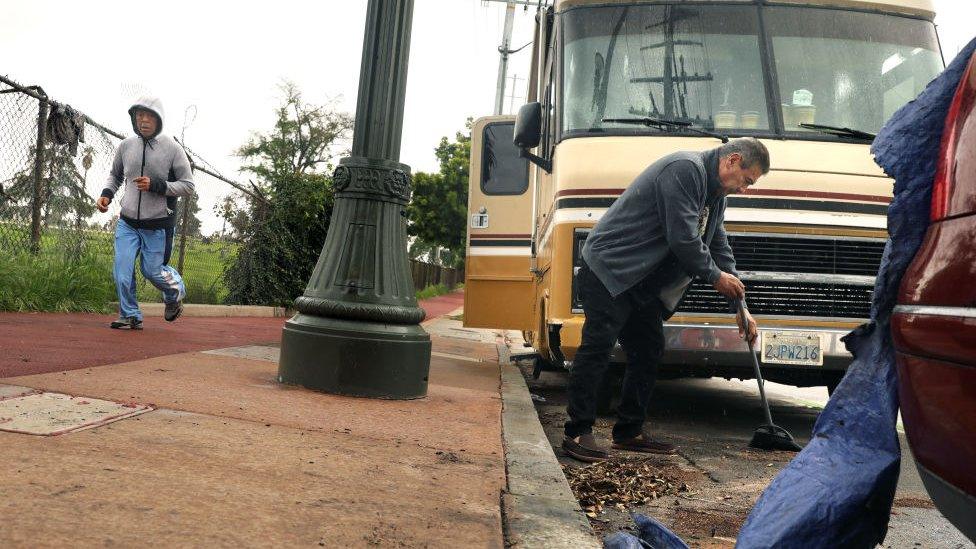
People try to keep their motorhomes tidy, but some city residents say that vans are hurting the environment
A fire destroyed much of the area a few years ago and in the last few months, cold van dwellers have chopped down trees to burn for warmth and cooking.
People find trash, and sewage and even cash machines thrown into the water at the wetlands and all their signs and fences have been defaced or burned, he said.
Some are often too afraid to walk in the wetlands near the trailer park and they no longer take visiting school children to that section of the wetlands because it's not safe, he added.
"I don't want to underscore how serious the homelessness issue is in Los Angeles, but this is an environmental issue," Mr Culbertson said.
But many say they have few other options.
Richard has lived in his motorhome for two years - parked a few miles from the house where he grew up in Burbank. Before that he lived in his truck for a year. Technically, he's a van lord now too - he rents out his cousin's motorhome for $400 a month while his cousin is in jail.
"It's too expensive to live anywhere else," he said, adding that he works in construction when he can and is saving to move somewhere cheaper like Texas or Arizona.
- Published21 February 2019
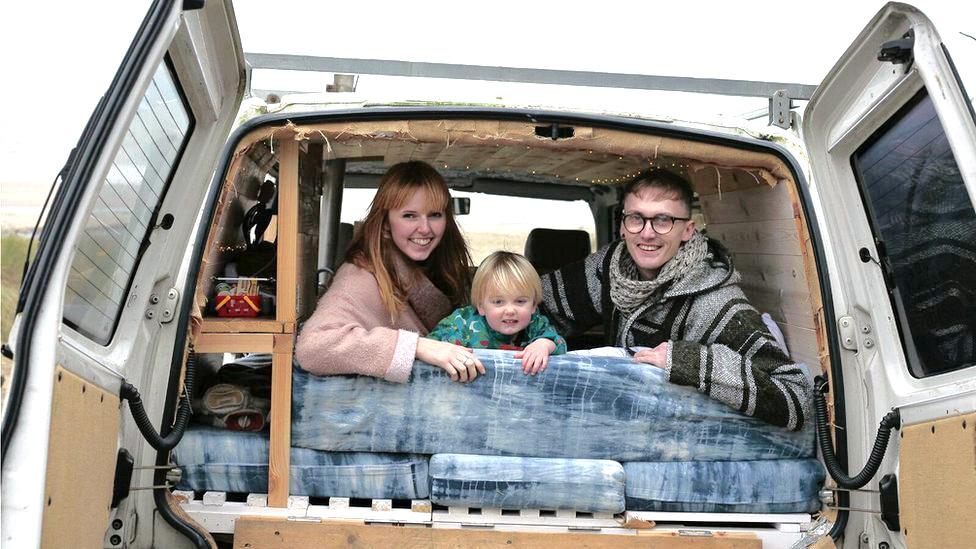
- Published19 September 2019
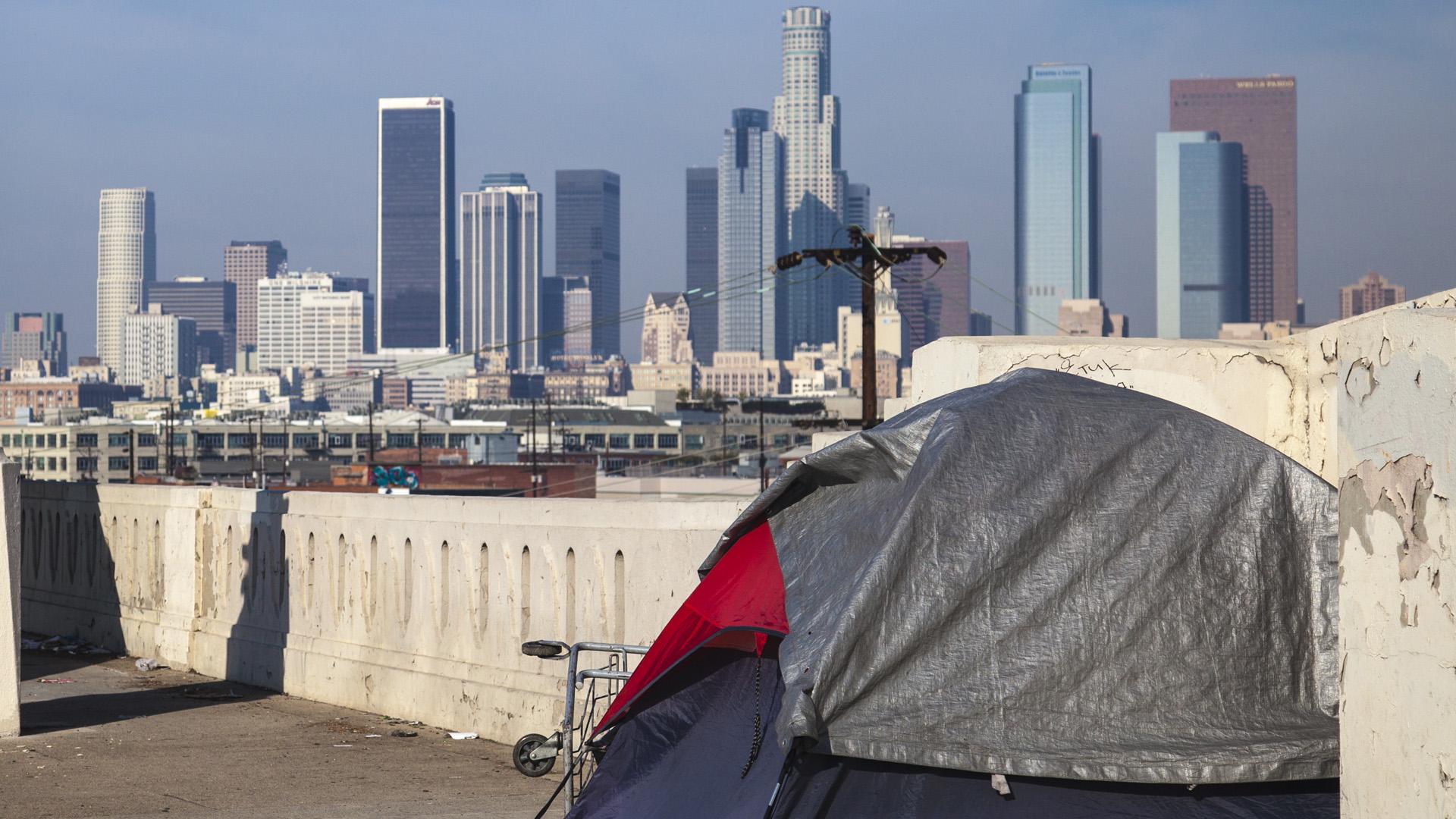
- Published6 February 2020
